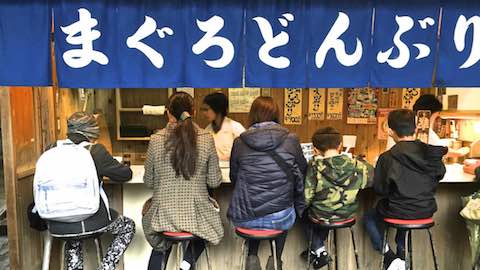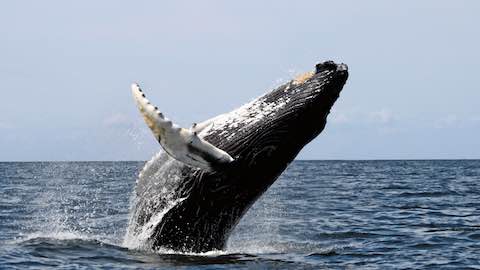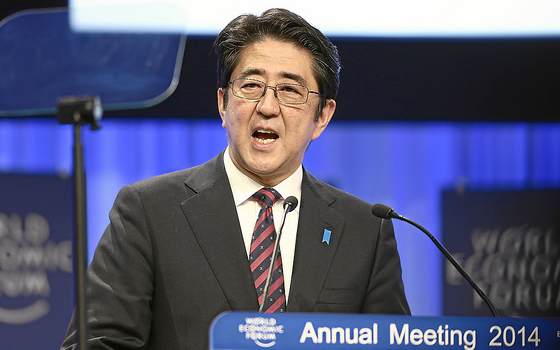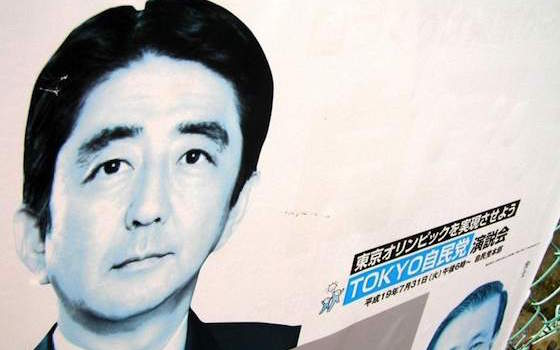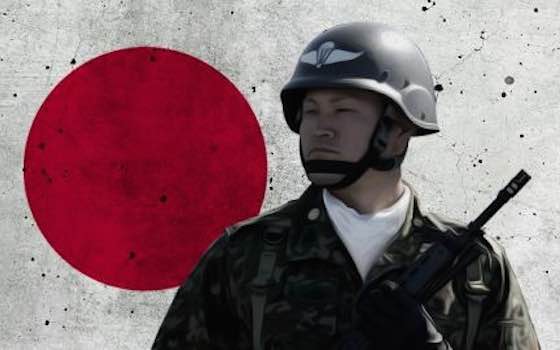- MENU
- HOME
- SEARCH
- WORLD
- MAIN
- AFRICA
- ASIA
- BALKANS
- EUROPE
- LATIN AMERICA
- MIDDLE EAST
- United Kingdom
- United States
- Argentina
- Australia
- Austria
- Benelux
- Brazil
- Canada
- China
- France
- Germany
- Greece
- Hungary
- India
- Indonesia
- Ireland
- Israel
- Italy
- Japan
- Korea
- Mexico
- New Zealand
- Pakistan
- Philippines
- Poland
- Russia
- South Africa
- Spain
- Taiwan
- Turkey
- USA
- BUSINESS
- WEALTH
- STOCKS
- TECH
- HEALTH
- LIFESTYLE
- ENTERTAINMENT
- SPORTS
- RSS
- iHaveNet.com: Japan Current Events
Countries
Argentina | Australia | Austria | Benelux | Brazil | Canada | China | France | Germany | Greece | Hungary | India | Indonesia | Ireland | Israel | Italy | Japan | Korea | Mexico | New Zealand | Pakistan | Philippines | Poland | Russia | South Africa | Spain | Taiwan | Turkey | United Kingdom | United States
- The Asian Territorial Order
- Asia's Cities Against North Korea
- Shinzo Abe Wins in Landslide
- Can a Green Asia Lead the World?
- Japan's History Challenge
- China's Military Posture
- Japan Antagonizing Everyone
- Japan: Cats Overrun Island
- Why Japanese See Honor in Suicide
- South China Sea Dispute Rumbles On
- Automated Checkout in Japan
- And Then There Was One
- Learning from Japan's Tsunami
- The Trumping of Asia
- Is Life Better Or Worse?
- Jobs Under Threat From Automation
- Tragic Death of Japan's Pacifism
- Shinzo Abe Boosts Japan-China Relations
- Japan: The Apology Olympics
- Japan's Oldest Celebrates 117th
- Is Japan's PM the Next Putin?
- Why China Hates Japan
- Man Walks Pet Tortoise in Japan
- Why is China Militarising?
- Is China a Threat?
- Disappointment Seems Imminent
- Japan's Nuclear Ambition
- Asia's Other Nuclear Standoff
- The Global Militarisation Index
- World's Fastest High-Speed Trains
- Class Politics & Tensions
- Okinawans Want Their Land Back
- China's Military Reorganization
- Hobbled by Racism & Militarism
- Japan under Shinzo Abe
- Tears in Tokyo as USA Beats Japan
- Japan's Aging Drama
- Bigger Economic Role for Japan
- New Faces, Old Tensions
- Japan's Heavy History
-
Coverage, analysis, photo and video coverage of the 2014 FIFA World Cup from Brazil
-
Check out the photos from the Group C matchup between Colombia and Japan at the 2014 FIFA World Cup in Brazil - Colombia vs Japan Pictures
-
Check out the photos from the Group C matchup betweenJapan and Greece at the 2014 FIFA World Cup in Brazil
-
Check out the photos from the Group C matchup between Japan and Ivory Coast at the 2014 FIFA World Cup in Brazil
-
The significance of the shift from Europe to the Pacific is overrated, since Europe is much richer and more important to the American economy than China or any other Asian nation other than Japan. The US could in fact do well with a movement toward isolationism
-
A record of $1.76 million was paid for a bluefin tuna by Kiyomura K.K., a Tokyo-based sushi chain.According to reports, the tuna weighed 489 pounds at the market's first auction of 2013
-
The conflict in the South China Sea may be long running, but there are several reasons why it has become much more dangerous. There can be little doubt that President Obama in his second term will find the South China Sea one of the hottest issues in East Asia
-
Just hours after North Korea delayed the much-criticized rocket launch program, Japan said that it would remain on full alert as Pyongyang has opened the lift-off window
-
In a development that could further strengthen the case for more fiscal stimulus and 'unlimited' easing of monetary policies to spur economic growth, Japan's economy sank into a technical recession
-
Kenta Maeda allowed just one hit in five scoreless innings as Japan hit four RBI in the fourth frame en route to a 5-2 win over China in the World Baseball Classic
-
With Japanese militarism on the rise, Okinawan leaders bring an angry appeal for peace to Tokyo. It was against this drumbeat of resurgent Japanese militarism that more than 140 Okinawan civic representatives made a historic trip to Tokyo
-
Attempts at fostering greater regional cooperation across Northeast Asia are likely to remain compromised by entrenched political elites and nationalist sentiment for the foreseeable future. This suggests that the 'idea' of regional cooperation is more viable than the development of working institutions
-
The Trans-Pacific Partnership could add billions of dollars to the U.S. economy and solidify Washington's commitment to the Pacific. But if the Obama administration fails to calm critics of the deal, there is a growing possibility that it could collapse
-
Japan is about to replace its nuclear plants with something just as risky
-
India and Japan have had their historical ups and downs. Now, wariness of China and common interests in the Asia-Pacific region are bringing Japan and India together
-
The United States' central challenge over the next several decades is to revitalize itself, while promoting a larger West and buttressing a complex balance in the East that can accommodate China's rising global status
-
South Korea hopes that the new base will help strengthen its territorial rights on Dokdo as the base would enable its ships to reach the islands quickly
-
Toyota Motor Corp. (TMC) has announced plans to export cars manufactured by its subsidiary in India to South Africa
-
Hackers have attacked the websites of Japanese government offices and Mitsubishi Heavy Industries, where nuclear data was feared stolen
-
The economy of Japan shrank more in the second quarter of the year than government officials initially thought, according to revised government figures
-
The earthquake and tsunami that struck northeastern Japan on March 11, 2011, caused almost unimaginable damage and misery. But some see a silver lining to these dark tragedies. After 20 years of economic stagnation, the crisis could bring the Japanese together, catalyze much-needed reforms, and reverse decades of malaise
-
Risk assessments are supposed to lead to decisions that provide more security. However, after a series of tragic failures such as the nuclear meltdown in Japan, BP's deadly blowout, and the destruction caused following Hurricane Katrina, it is becoming increasingly clear that there are serious problems with our ability to accurately evaluate and mitigate risk. The question is, why?
-
A magnitude 6.7 tremor rocked northern Japan. The quake, which hit the region at 6:51 a.m., had an epicenter near the east coast of Honshu, according to the U.S. Pacific Tsunami Warning Center
-
A massive earthquake measured at magnitude 8.9 struck northeast Japan March 11, the most powerful quake in that country's recorded history, according to the U.S. Geological Survey
-
This is an opportunity to review Washington's strategy is in Korea and how the countries around North Korea (China, Russia, South Korea and Japan) view the region
-
Despite the recent change in North Korea's leadership, it is important that talks resume between North Korea and Japan
-
Diminished nuclear power-generation capability poses serious vulnerabilities to Japan's energy security
-
The presence of American military bases in Japan has been a strong cause of unrest and outspoken frustation
-
Workers at Japan's Fukushima Dai-ichi nuclear facility plant have discovered a leak of 45 metric tons of contaminated, radioactive water. It is not yet clear if the contaminated water reached the Pacific Ocean
-
Concerns about climate change, as well as growing demand for electricity, led many governments to reconsider their aversion to nuclear power. But the movement lost momentum when the earthquake and the massive tsunami it triggered devastated Japan's Fukushima nuclear power plant. It would be a mistake, however, to let Fukushima cause governments to abandon nuclear power and its benefits
-
The Ozawa Ichiro 'phenomenon' has returned to haunt Japanese politics. Although Prime Minister Noda Yoshihiko carefully chose his Cabinet team by picking two members of the group led by former DPJ chief Ozawa with the apparent intention of fostering reconciliation between rival groups, harmony is yet to be restored
-
Japan's debt rating was downgraded to Aa3 from Aa2 by Moody's. The cut came over concerns about the level of the Asian giant's budget deficit and borrowing
-
In the first quarter of 2011, the Japanese economy shrunk by 3.5 percent. Projections for the second quarter also call for further contraction, but experts are expecting a sharp pickup in growth in the second half of the year and in 2012 as the country rebuilds
-
North Korea and Russia may be chummy, but South Korea and Japan remain suspicious of North Korea's motives.
-
A survey of 10 regional power utility firms in Japan released said that the companies are expecting electricity shortages this summer because of the nuclear crisis that hit the country caused by the March 11 magnitude 9 earthquake
-
The tsunami carved a well-documented path of devastation, most notably crippling the Fukushima Daiichi nuclear power plant and damaging the plant's four reactors. In the time since, as many as 580 workers have been tasked with battling a potential nuclear catastrophe. Meanwhile, researchers at schools in the United States are working on technologies that will ensure a more effective response
-
Lodged between Russia and China, Mongolia is looking to Japan to play the role of its 'third neighbor'
-
Asia is spending more on the military and selling more weapons to the world
-
Asia has one of the largest concentrations globally of aging persons, creating a host of potential challenges
-
Thanks to globalization, a crisis of governability has beset the Western world. The mismatch between the growing demand for good governance and its shrinking supply is one of the gravest challenges facing the West today
-
Japan's Nuclear and Industrial Safety Agency (NISA) said that the explosion at the Fukushima Daiichi No. 1 nuclear plant could only have been caused by a meltdown of the reactor core, Japanese daily Nikkei reported. This statement seemed somewhat at odds with Japanese Chief Cabinet Secretary Yukio Edano's comments
-
New developments at Japan's earthquake-damaged Fukushima Daiichi nuclear reactor No. 1 may suggest positive signs for authorities' efforts to contain the problem. But many dangers and risks remain.
-
As demand for Japanese goods declined due to the European debt crisis and Tokyo's territorial row with China, exports in September showed the biggest decline since the earthquake and tsunami in 2011
-
Japan's dream of winning an Olympic medal finally turned into reality in London as the duo formed by Kimura and Sakoda played a superb match to edge Korea in straight sets
-
In what will be a rematch of the 2008 Beijing Olympic finals, Team USA and Brazil will be fighting for gold after they dominated their respective semi-finals with Korea and Japan
-
Local sales of Japanese carmakers increased by more than 25% in 2012 as the industry bounces back from a slowdown in 2011 as a result of the earthquake and tsunami
-
The Japanese government is on alert after Chinese state-owned airplane had flown toward disputed islands and citing the Japan's Ministry of Defense it also mobilized its fighter jets
-
The possible repercussions on Japan's bilateral relations with China and Taiwan might still create serious hurdles in proceeding with the nationalization plan for the Senkakus
-
Japan produced the biggest shock so far in Olympic soccer as it edged World Cup and European Champion Spain, 1-0
-
Japan summoned the Chinese ambassador in a fresh dispute over East China Sea's remote chain of islands, which believed to have vast reserves of oil and gas resources
-
Are China, Japan and South Korea 'locked in' to a traditional balance of power dynamic, or does another future path exist?
-
The appearance of the new Japanese leader already attracted the attention of neighboring countries. China has viewed the appointment of Japan's new premier with more anxiety than enthusiasm, given Yoshihiko Noda's conservative views
-
Residents of areas near the damaged Fukushima Daiichi nuclear power plant who have been forced to flee their homes are criticizing the 200-page document sent by the Tokyo Electric Power Company (TEPCO) for them to be eligible for compensation
-
Robots were a major force in the automation drive that made Japan the most competitive nation in manufacturing in the 1980s. That glory seems to have faded in recent decades, and Japanese robotics are no exception
-
Let's hope that, unlike with Hiroshima and Nagasaki survivors, bias against Fukushima refugees will be kept to a minimum
-
Japan completed its quest for history in unlikely manner, rallying twice from late deficits and pulling out a gutty victory over the United States in the finals of the 2011 FIFA Women's World Cup. Regulation ended 1-1, the score was 2-2 after two 15-minute extra periods and Japan won 3-1 in penalty kicks
-
Romania's World Cup bid is over, but the Six Nations regular competitor is expected to return home with valuable lessons. Despite being outplayed in their clash with Six Nations rival Georgia 25-9 Wednesday, the Romanian side is still backing the retention of a 20-team tournament
-
The United States might be grappling with a host of serious economic maladies, but comparatively speaking, we're still better equipped to continue growing than many other advanced economies, experts say. Here's a list of five advanced economies that face economic challenges more serious than our own
-
For years now, wild Pacific fish has been touted as being lower in contaminants than fish from other waters, but in the wake of the rising radiation levels from the Fukushima nuclear plant in Japan, many consumers are wondering if any ocean life is safe.
-
A World Bank report shows the Japanese disaster to be one of the most costly in recent memory. The report estimates the quake's economic toll at $122 to 235 billion U.S. dollars, and furthermore estimating that the country could take five years to recover. The report also says that 15,214 are dead or missing
-
I thought I would write about Japan today because, like most people in the world, my heart goes out to all its citizens. The world hopes that the devastation caused by the earthquake and tsunami will subside.
-
Japan's economy doesn't show signs of recovering any time soon, especially in the aftermath of the earthquake and tsunami, and amid concerns about a damaged nuclear plant. But despite its hardships, Japan is still a legitimate force in the world economy, and many trade partners depend on exports from a range of Japanese companies. Here are five reasons investors shouldn't abandon Japan
-
Fears of radiation and nuclear catastrophe remain the focus of the ongoing calamity in Japan, now in its second week. With aid from around the globe, Japan continues to struggle with the aftereffects of its natural disasters. Meanwhile, the rest of the world contemplates the safety and future of nuclear energy
-
The cost of the damages in Japan could top $300 billion from the earthquake and tsunami, making it the most expensive natural disaster on record
-
Japan faced another difficult day, as the Fukushima Daiichi nuclear power plant -- the site of multiple explosions since last week's 8.9-magnitude earthquake -- caught on fire once again.
-
Japan's worsening crisis at the Fukushima nuclear plant following the March 11 earthquake and tsunami has reignited the debate about the safety of nuclear power. Charles Ferguson, president of the Federation of American Scientists and author of 'Nuclear Energy: What Everyone Needs to Know,' says the worst-case scenario is if the spent fuel rods at Fukushima catch fire
-
Concern about radiation exposure has been rising in Japan as nuclear experts struggle to contain the cores of at least three nuclear reactors and a spent nuclear fuel facility at the Fukushima Daiichi nuclear plant. Prime Minister Naoto Kan's government is at pains to calm anxiety, not only among the Japanese people, but among the international investment community and observers worldwide
-
The explosion at the earthquake-damaged Fukushima Daiichi nuclear power plant in Okuma, Japan, appears to have caused a reactor meltdown.
-
Over the past week, everything seemed to converge on energy. The unrest in the Persian Gulf raised the specter of the disruption of oil supplies to the rest of the world, and an earthquake in Japan knocked out a string of nuclear reactors with potentially devastating effect. Japan depends on nuclear energy and it depends on the Persian Gulf, which is where it gets most of its oil
-
The nuclear reactor situation in Japan has deteriorated significantly. Two more explosions occurred at the Fukushima Daiichi nuclear power plant on March 15
© iHaveNet.com
